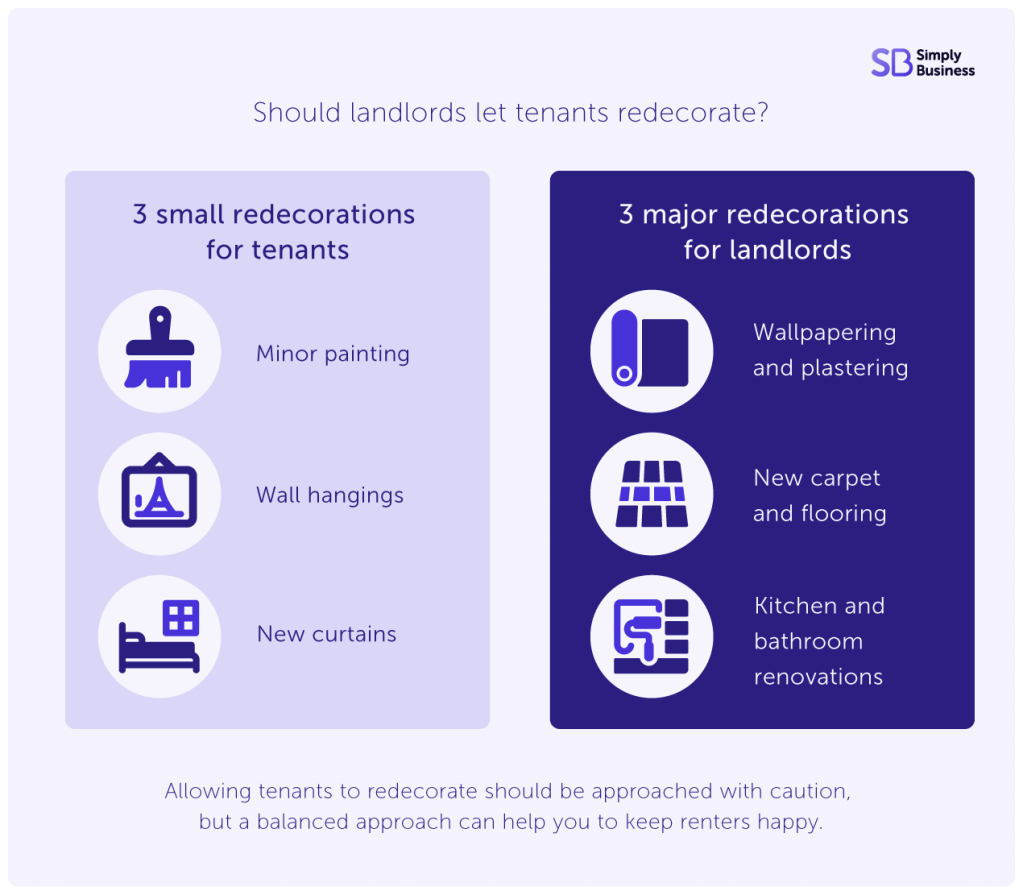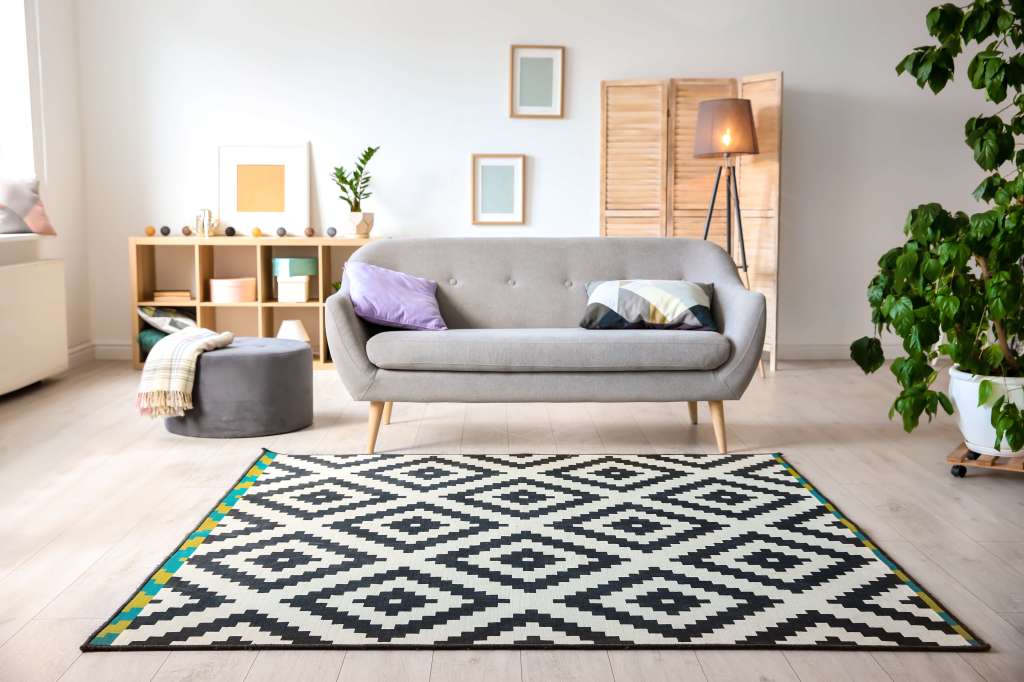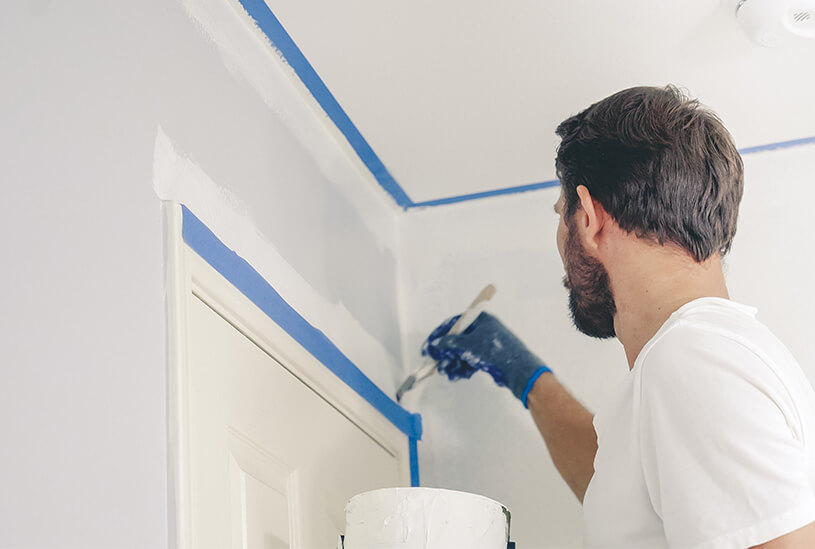There’s no fixed timescale in which you should redecorate your rental property. However, many landlords choose to redecorate around once every five years, and generally at the end of long tenancies.
It’s not always clear who should be doing the redecorating, and who should pay for it – but doing some simple work to your property can increase its rental value.
We’ve answered some of the most common landlord questions on redecorating a rental property, including:
- how often should landlords redecorate?
- who’s responsible for decorating a rental property?
- how often should a landlord paint?
- how often should a landlord replace carpet?
- how often should a landlord replace a kitchen?
- how often should a landlord replace a bathroom?
- should you let tenants redecorate?
How often should landlords redecorate?
Landlords have a responsibility to rent out a property in good condition, while tenants should look after the property and return it in the same condition they found it.
Although some urgent redecoration may be needed during a tenancy, the best time for most jobs to be completed is in between tenancies when the property is empty.
Who’s responsible for decorating a rental property?
The landlord is normally responsible for decorating a rental property. It’s rare that the tenant needs to redecorate at the end of a tenancy, although it’s sometimes included in a tenancy agreement.
If the tenant damages the interior of the property, you may be able to keep part of their deposit to pay for redecoration and repairs. But keep in mind, if redecoration is needed because of normal wear and tear, this is the landlord’s responsibility and you’ll need to pay for it – you can’t make a deposit deduction for this reason.
Read more: Landlord responsibilities – a guide to property maintenance and repair
How often should a landlord paint?
There’s no legal timescale for repainting a rental property. However, it’s wise to keep your property in good condition, both for the benefit of your current tenants, and to make it easier to attract new ones.
Many landlords recommend repainting (or completely redecorating) once every five to six years. If you have long-term tenants, it can be disruptive to redecorate during the tenancy, so you should negotiate times carefully.
How often should a landlord replace carpet?
There’s no carpet replacement law in the UK. As with general redecoration, most landlords will review the carpets in their rental property approximately every five years.
When a carpet needs replacing depends on the quality of the one you bought – a better quality carpet could last up to 10 years, while a lower quality one may only last three to five years.
It also depends on the usage – the carpet in a student property is likely to get a lot more use than one in a property rented by a single young professional.
If the carpet is badly damaged or stained at the end of a tenancy, you may be able to charge the tenant for a deep clean, repairs, or replacement. However, it’s important to remember that they can’t be charged for fair wear and tear.
That’s why it’s important to have a thorough inventory and lots of photos of the carpet at the start of the tenancy. This makes it much easier to work out what’s fair wear and tear, and whether any reasonable deposit deductions can be made.
How often should a landlord replace a kitchen?
During or in between tenancies, there may be urgent repairs or upgrades you need to make, such as fixing the oven or replacing the fridge freezer. That said, most kitchens in rental properties will last around 10 years before needing a full refurbishment.
It’s important to remember that with tenants moving in and out of the property frequently during this period, you’ll need a durable kitchen. Features like hard-wearing floors and non-scratch surfaces can give the kitchen more longevity.
You’ll be responsible for any repairs needed during the tenancy, but when it ends you may be able to charge tenants for kitchen repairs and replacements if you can prove it’s not fair wear and tear.
Landlords can get insurance cover for accidental damage to their property as well as a home emergency.
How often should a landlord replace a bathroom?
Landlords should maintain their bathrooms regularly, touching up the decor and making sure everything is in working order.
When it comes to completely replacing the bathroom (or the main fixtures, such as the shower, sink, and toilet), this should be done roughly every 10 years. As with other rooms, if the property has lots of tenants or a high level of turnover, the bathroom may need replacing sooner.
The bathroom is one of the most important rooms in a property. Tenants will be looking for a space that’s light, clean, and functional. When upgrading the bathroom, don’t skimp on important features and think about extras that might be popular with renters, such as a heated towel rail.
Should you let tenants redecorate?
Sometimes, a tenant may ask if they can redecorate the property themselves. This can be a difficult decision for landlords as there are pros and cons to allowing tenants to redecorate.
For example, you may have a long-term tenant who’s keen to put their stamp on the property. Giving them the opportunity to redecorate (within reason) could be beneficial if you want to encourage them to stay and maintain a positive relationship.
However, allowing tenants to redecorate should be approached with caution – they won’t see your property as an investment, and you don’t know what their interior tastes or decorating skills are like.
Wherever you decide, tenants should not redecorate themselves without seeking permission from the landlord in advance. If you do allow tenants to make changes to the property, make sure everything is agreed in writing and you keep detailed records.
What small redecorations could you allow tenants to do?
A balanced approach can help you to keep long-term tenants happy and save you some money on redecorating costs.
This can be achieved by allowing tenants to make small changes to the property which won’t affect its value or relet potential.
- minor painting – it’s wise to agree the colours and plans beforehand
- hanging things on the walls – Command Strips and hooks cause less damage than nails and Blu Tack
- new curtains – a quick fix with little hassle, especially if no changes are made to the rail

What major redecorations should tenants avoid?
If you allow tenants to redecorate, there’s a risk that they’ll do a poor job, make the property less appealing to future tenants, or even devalue it. With this in mind, there are some redecorating jobs you should only organise yourself.
- wallpapering or plastering – these are important jobs which should be done by a professional
- new carpet/flooring – encourage tenants to get rugs, rather than making any permanent changes to flooring
- kitchens or bathroom renovations – these rooms need time and money invested in them and upgrading them should remain the landlord’s responsibility

Top 5 landlord redecorating tips
If you’re getting ready to redecorate your rental property, try some of these top tips to make the process as smooth and successful as possible:
- Go for neutral colours – bright or unusual colours could put off potential new tenants – if in doubt, stick with white
- Invest in quality appliances – spending a bit more on appliances, especially in the kitchen, can make financial sense because they’ll often last longer
- Keep records – if you can prove when a property was redecorated or an item replaced, you’ll be in a much better position if you need to make a deposit deduction
- Don’t cut corners – tenant expectations are higher than ever, and you could end up having to redecorate sooner if you take a reactive approach
- Follow trends – what are tenants looking for at the moment? Take note of in-demand features such as home offices to help you to focus your redecoration

Do you have any great redecorating tips? Let us know in the comments.
More guides for buy-to-let landlords
- How can landlords get a buy-to-let remortgage?
- What is the minimum bedroom size for HMO properties in the UK?
- Energy efficiency guide for landlords – what is an EPC rating?
- Landlord end of tenancy checklist – here’s what you need to do
Get set with tailored landlord cover
Over 200,000 UK landlord policies, a 9/10 customer rating and claims handled by an award-winning team. Looking to switch or start a new policy? Run a quick landlord insurance quote today.
Photograph 1: RightFramePhotoVideo/stock.adobe.com
Photograph 2: New Africa/stock.adobe.com
